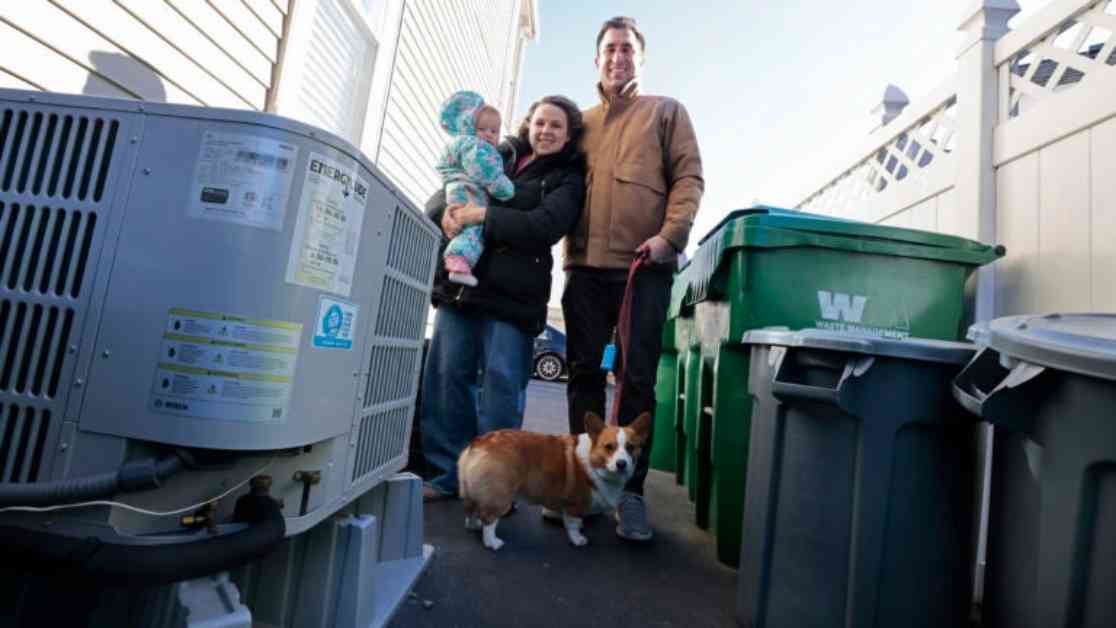As winter chill gripped Massachusetts, residents found themselves facing an unexpected adversary: shockingly high energy bills. The Massachusetts Department of Public Utilities (DPU) recently took action to address the alarming spike in gas and electricity costs that left many customers reeling from sticker shock. The DPU directed the state’s major gas providers to reduce customers’ gas bills by at least 5% starting next month, acknowledging the unsustainable levels that bills had reached.
The significant surge in energy costs was attributed to a combination of factors, including a sharp increase in supply costs, high programming-related expenses recovered through delivery charges, and a particularly cold winter season. As customers across the state grappled with exorbitant bills, Gov. Maura Healey and state lawmakers raised concerns about the skyrocketing energy costs impacting residents.
In response to mounting pressure, gas companies like Eversource and National Grid were tasked with lowering residential customers’ bills starting in March and April. While the DPU urged these companies to take action, it stopped short of mandating a reduction in delivery charges for February bills. The companies have until February 24 to submit their proposals for adjustments, which will take effect on March 1.
The call for lower energy costs comes at a critical time for residents like Chris Vorlicek and his wife, Lauren Prince, who reside in Medford. The couple, along with their 11-month-old daughter Lucy and dog Tucker, were among many families facing the financial strain of unusually high energy bills this winter season. Their story is just one of many shared by Boston.com readers who have felt the impact of rising energy costs firsthand.
Readers Sound Off on Rising Energy Bills
In a recent survey conducted by Boston.com, over 550 readers voiced their frustrations with the surge in gas and electric bills. The overwhelming majority, at 97%, reported experiencing significant hikes in their energy costs. From East Boston to Lowell, readers shared personal anecdotes that shed light on the financial hardships caused by the unprecedented spike in utility bills.
Melissa M., a resident of East Boston, lamented the nearly doubled heating bill that left her questioning the fairness of the charges. Similarly, Jamie M. from Lowell described his shock at receiving the highest gas bill ever for his 2,000 square foot home. These accounts, along with those of Mike D. from Melrose and Lal from Shrewsbury, underscored the widespread impact of the energy cost crisis on households across the state.
Voices of Frustration and Resilience
As residents grapple with inflated energy bills, emotions ranging from frustration to resignation have been palpable in their responses. Alan B. from Bedford expressed his disillusionment with elected officials and government policies that have failed to address the affordability of energy. Laura from South Hadley and Ava L. from Millbury echoed concerns about the exorbitant delivery fees imposed by utility companies, calling for greater transparency and accountability.
The sentiment of distress was further echoed by L.W. from Falmouth, Lawrence R. from Norfolk, and other readers who decried the lack of oversight and regulation in the energy sector. For many, the surge in energy costs has exposed vulnerabilities in the system and raised questions about the state’s ability to protect consumers from financial burdens.
From the chilling narrative of Robert P. in Dorchester, who described wearing a hat and jacket indoors to conserve energy, to the struggles of Stu M. in Salem and Bridget N. in Quincy, who have had to endure frigid temperatures to offset rising heating costs, the human toll of the energy crisis is undeniable. As Michelle from Beverly and Mark from Canton shared their experiences of shockingly high bills, the urgency of finding sustainable solutions to mitigate the impact of soaring energy costs became even more apparent.
In conclusion, the stories of Massachusetts residents grappling with unprecedented energy bills paint a vivid picture of the challenges faced by households across the state. As policymakers and utility companies work to address the crisis, the voices of consumers ring loud and clear, calling for relief and accountability in the face of escalating energy costs.






